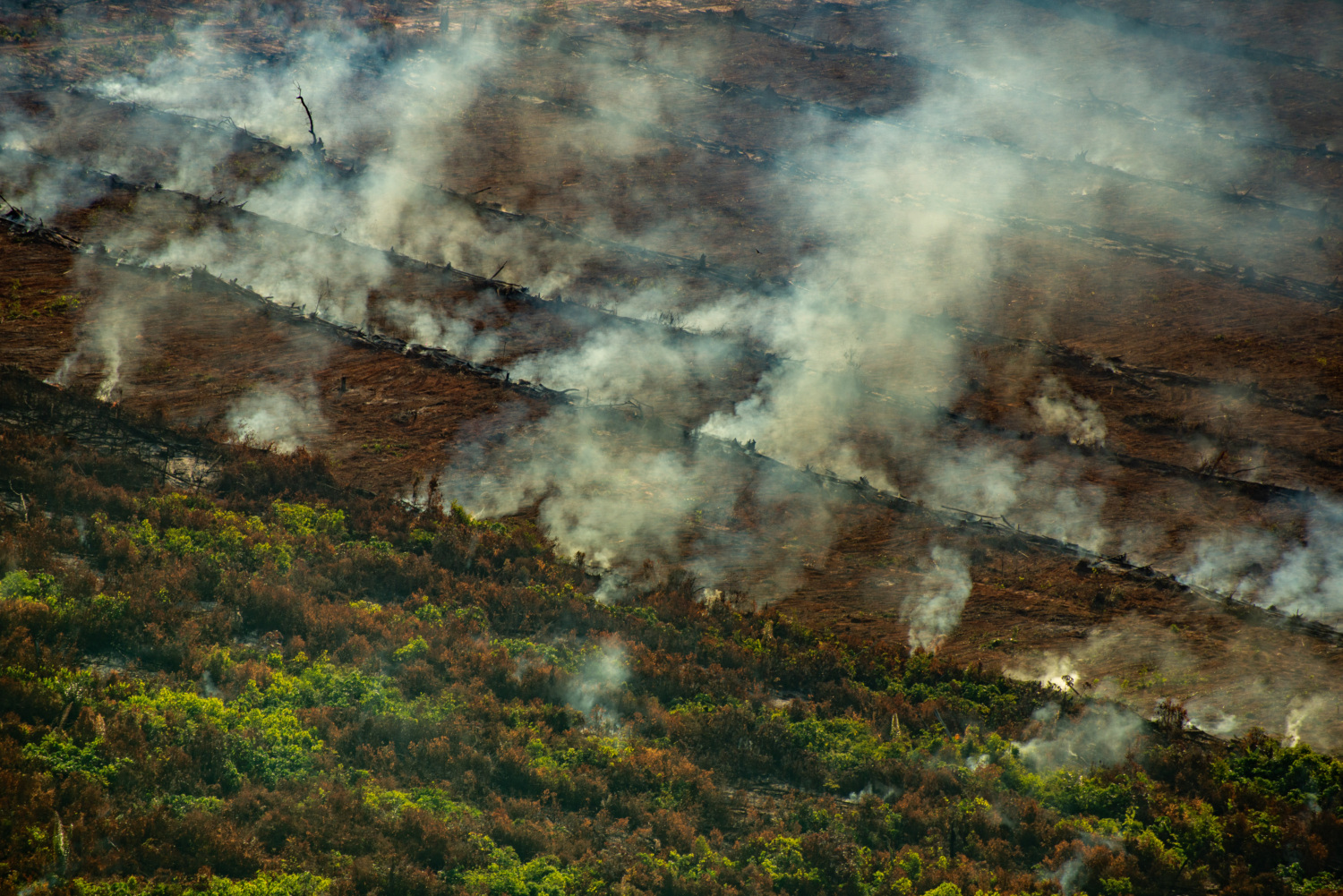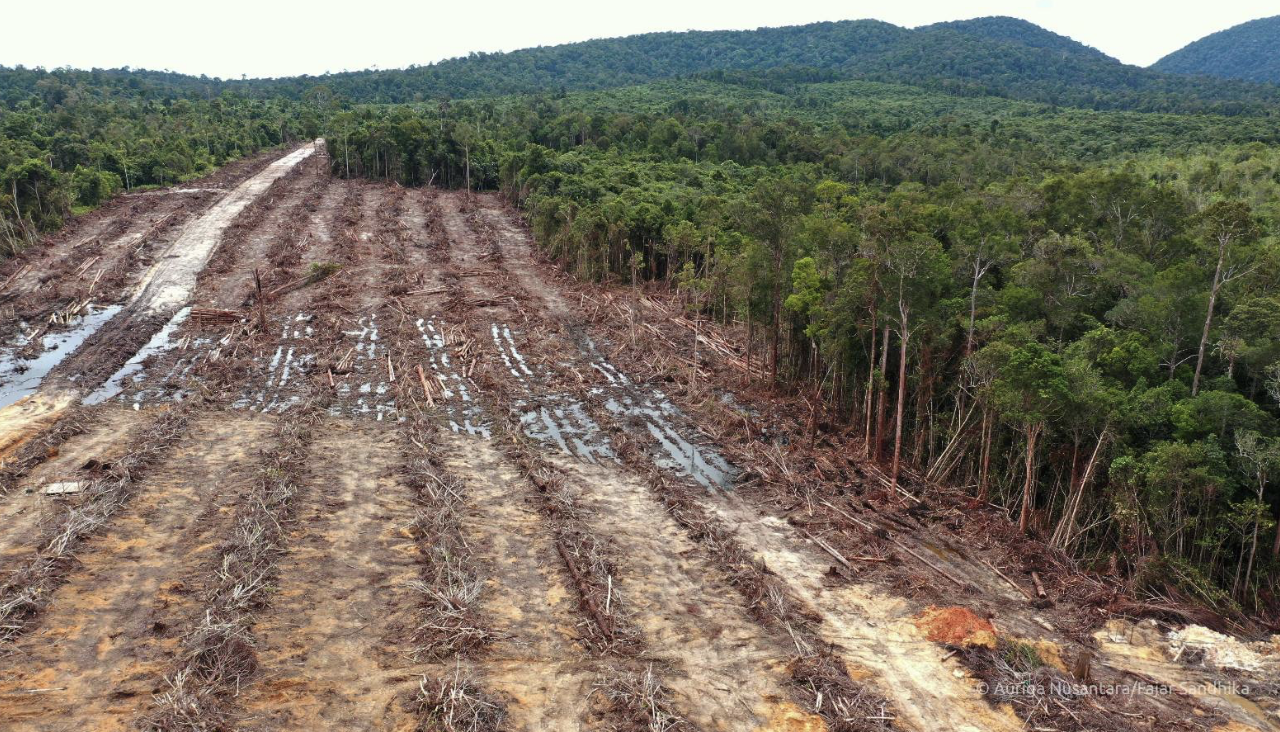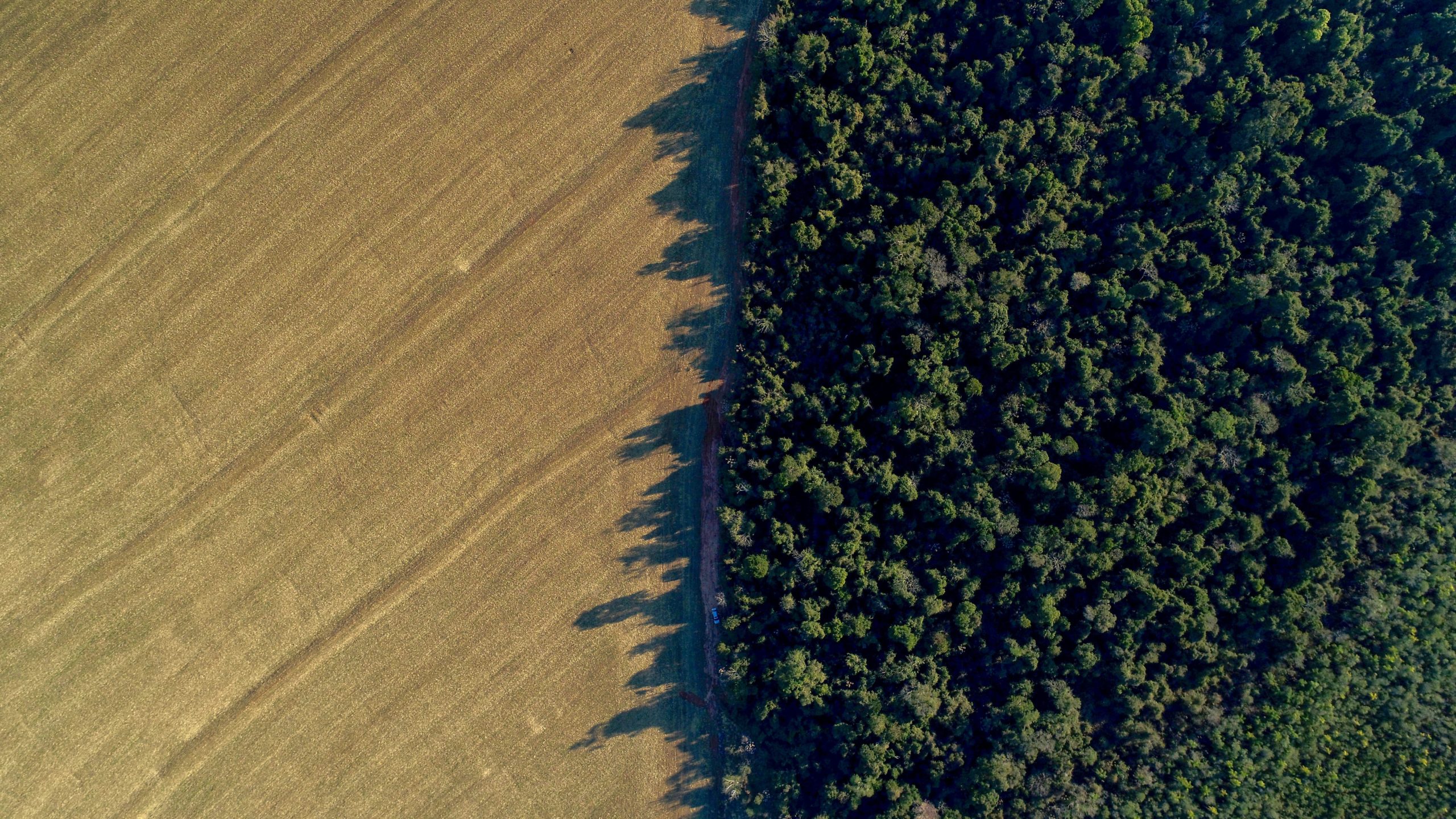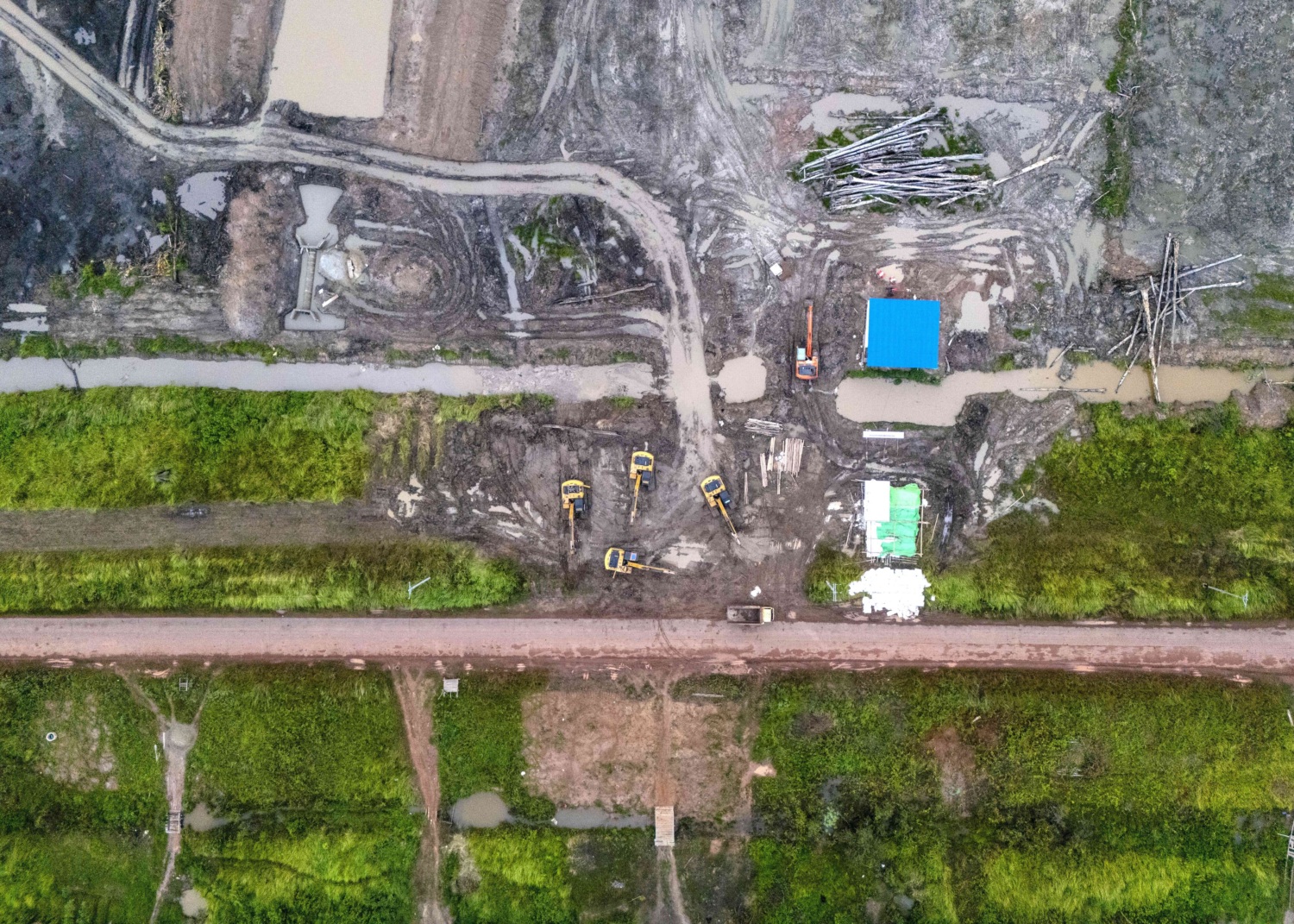
Spain’s seven biggest supermarkets linked to deforestation risk in Brazil
Read the report in English here
Read the report in Spanish here
Read the press release in Spanish here
The international environmental organization Mighty Earth has released a new report “Busted! Spanish soy sourcing linked to deforestation risk in the Amazon and the Cerrado” which finds that seven of the main Spanish supermarkets — Carrefour, Mercadona, Alcampo, Lidl Supermercados, El Corte Inglés, Grupo Dia and Aldi — are barely committed to the fight against deforestation in the Brazilian Amazon and Cerrado.
Data analysis reveals almost 4 million tons of soy were imported from Brazil into Spain last year, destined mainly for use as animal feed for livestock in Spain and with a high risk of being linked to deforestation and conversion of highly threatened ecosystems such as the Amazon rainforest and the Cerrado savannah.
After analyzing the non-financial reports and purchasing policies of these seven supermarket chains, everything indicates that deforestation and conversion risk linked to soy-based animal feed is an issue that is not being adequately addressed and the sector is paying insufficient attention in Spain.
Of the supermarkets analysed only Aldi, Carrefour and Lidl have published that they have a global deforestation and conversion free (DCF) policy that includes soy, although little evidence was found that this is done in practice. Therefore, a wide range of meat products sold in their shelves in Spain, including pork and turkey meat, sausages, cold cuts such as turkey breast, cooked ham, bacon, mortadella and cured meats such as Iberian chorizo, salchichón and ham may be at risk of being linked to embedded deforestation and conversion risk from Brazilian soy.
Leading Spanish animal feed companies ElPozo, Costa Food, Grupo Fuertes and the Campofrío-Valls Companys were also investigated as suppliers of Carrefour brand meat products. None of these companies publish any information on possible deforestation risk due to soy present in their meat products, despite the fact they mainly source from the two large importers of deforestation-risk soy in Spain: Bunge and Cargill. These two multinationals alone represent 65% of Spain’s exposure to deforestation risk in Brazil.
Isabel Fernández, spokesperson for Mighty Earth in Spain and main author of the report, said:
“We’ve busted Spain’s biggest retailers’ likely links to soy-driven deforestation in the Amazon and the Cerrado and now we’re calling for urgent action. In particular from Carrefour, which is still not able to show full traceability in its soy supply chains. With the climate and nature emergency intensifying, Spanish supermarkets need to be part of the solution to save Brazil’s precious biomes from further destruction.”
Bunge and Cargill’s facilities in the ports of Barcelona and Cartagena.
The global grain giants Bunge and Cargill control an important part of the world soy trade and in Spain they import and mill millions of tons in the facilities they have in several ports, including at Barcelona and Cartagena, which are key gateways for the import of soy intended for animal feed.
The report found the port of Barcelona imported 1,370,821 tons of soybeans and the port of Cartagena 895,641 tons in 2022.
The port of Barcelona represents about 50% of the soy traffic in Spain. Both Bunge and Cargill have crushing plants in this key port, and it is one of the main supply points for the feed industry in Catalonia and Aragon, where companies such as Vall Companys or Costa Foods, among others, have a large presence.
The port of Cartagena is also one of the main entry points of soy from Brazil to Spain, with only one known buyer, Bunge. The feed industry in Murcia and companies such as Cefusa are supplied from this port. Cefusa is the Grupo Fuertes company in charge of the production and supply of feed to the pig and cattle farms integrated in the Group.
Destruction of the Cerrado in Brazil
Today, intensive livestock farming in Spain uses high-protein soy to enable animals to reach market weight as quickly as possible, to keep a ready supply of meat products for Spain’s supermarkets. The origin of the Brazilian soybeans imported to Spain comes mainly from two biomes: the Amazon and the Cerrado in Brazil.
Soybeans, which are mainly used for feed, are one of the main factors in the destruction of the Cerrado savannah, home to 5% of the world’s plant and animal species and many Indigenous and traditional communities. While deforestation rates in the Amazon are decreasing, in the Cerrado rates almost doubled by 46% in 2022.
Although the European Union Deforestation Regulation (EUDR), which will apply from December 30, 2024, represents great progress in the fight against deforestation linked to the international trade of seven critical commodities – including soy – if its scope of application is not expanded to the ecosystems included under the definition of “Other wooded lands” biomes such as the Cerrado will remain largely unprotected despite being the territory where 52% of the soy production area in Brazil is located.
For its part, two other Mighty Earth investigations from June 2023 and February 2024 show that soy imported by the main soy traders operating in Spain still cannot guarantee that they are free of deforestation or conversion risk. In the absence of will and a firm and transparent commitment on the part of the large soy traders, the EUDR needs to include “Other wooded lands” in its scope of application so as not to push the Cerrado ever closer to ecosystem collapse, as well as other key South American biomes.
Mighty Earth is urging Spanish supermarkets to:
- Publicly commit to a Deforestation and Conversion Free (DCF) policy and action plan that explicitly includes a January 2020 cut-off date, applicable to all natural ecosystems.
- Establish an online public platform for reporting on the origin of their soy, meat products suppliers, in addition to implementing a supply chain alert system and disclosing the proportion of soy from DCF supply chains.
For the Spanish meat industry to:
- Exclude from their supply chains all actors that contribute to the deforestation and conversion of natural ecosystems in areas such as the Amazon or Cerrado by immediately ending direct and indirect soy sourcing rom companies that fail to comply with a 2020 deforestation and conversion cut-off date.
- Promptly disclose on a public platform the origin of their soy products imported from Brazil, including lists of all their direct and indirect suppliers, with the proportion of soy sourced from a verified DCF supply chain.
For the government of Spain to:
- Guarantee the proper implementation of the EUDR for its application from December 30, 2024, and to support the expansion of the scope of the EUDR to include “Other wooded lands and other threatened biomes.
- Promote a national agreement to combat soy-related deforestation that goes beyond current legislation.
===
For more information or to arrange an interview:
Isabel Fernández, spokesperson for Mighty Earth in Spain and lead author of the report: Busted! Spanish soy sourcing linked to deforestation risk in the Amazon and the Cerrado
+34 675 51 09 33
Carlos Bravo, spokesperson for Mighty Earth in Spain
+34 675 51 09 33


